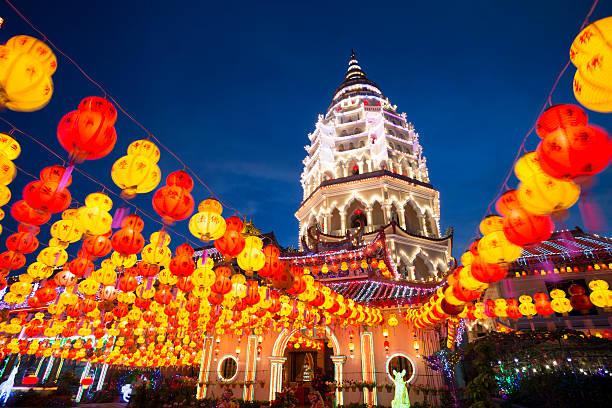Malaysia is a country of glittering diversities and several ethnicities, cultures and religions live in harmony. The multicultural identity is one of the most distinctive characteristics of the country and it is embedded in all spheres of the Malaysian life. The culinary and architectural heritage, traditions, and everyday contact with others make the cultural mixture colorful and fruitful. The diversity can be best illustrated through the many festivals held in Malaysia by the different communities living in the country.
As a culture lover or an adventurous traveller, attending the festivals of Malaysia will give you a real experience of the rich culture. Whether Hindu Thaipusam, Islamic Eid al-Fitr, Chinese New Year, or the local Gawai Dayak, each festival tells of a new aspect of Malaysian identity. So before you decide to travel to this land of color and celebration, make sure you apply in advance to a Malaysia visa that you can have a smooth cultural experience.
An Insight into the Key Cultural Festivals of Malaysia
1. Chinese New Year (January/February)
The Chinese New Year is celebrated by Chinese Malaysian community and it is the beginning of the lunar calendar. Red lanterns, lion dances, fireworks, and family gatherings are the highlights of Kuala Lumpur, Penang, and Ipoh cities. Temples are crammed with worshiper and houses are decorated. Open houses welcome both neighbors and tourists and feature such delicacies as pineapple tarts and Yee Sang. This festival portrays the high Chinese cultural influence to the Malaysian identity.
2. Thaipusam (January/February)
Thaipusam is a Hindu festival that is mostly practiced among the Tamil Malaysians particularly at Batu Caves in Selangor. Visitors wear kavadis (decorative frames) or even stab themselves in penitence and devotion to Lord Murugan. The view of hundreds of thousands of pilgrims ascending the stairs to the cave of the temple is very impressive and humbling. It shows the extent to which there is freedom of religion and respect in the Malaysian multicultural society.
3. Hari Raya Aidilfitri (Eid al-Fitr - dates vary)
The Malaysian Muslims celebrate Hari Raya Aidilfitri after one month of fasting during Ramadan involving praying, family visits, and good traditional food such as rendang, satay and ketupat. Malay houses welcome visitors of any kind, the spirit of unity and generosity. This is a Malay Muslim festival, which constitutes the majority people in Malaysia.
4. Deepavali (October/November)
Deepavali also referred to as the Festival of Lights is observed by the Hindu Malaysians with oil lamps, colorful decorations (kolam), and firecrackers. Flower decorations are added to the temples, families make sweets and vegetarian feasts. This festival is an epitome of light over darkness and is celebrated all over Malaysia especially in places such as Brickfields (Kuala Lumpur) and Georgetown (Penang).
5. Gawai Dayak (June 1-2)
Gawai is a harvest festival of the indigenous Dayak people of Sarawak which involves local music, dance and rituals. Longhouses are turned into the venues of a celebration and rice wine is poured out as people celebrate the rich harvest. This festival brings to the fore the indigenous heritage of Malaysia, which is usually ignored yet it forms part of its culture.
6. Kaamatan (May 30-31)
Kaamatan is a harvest festival of the Kadazan-Dusun people of Sabah which is similar to Gawai. It comprises beauty pageants, cultural performances and rice wine ceremonies. It is a good moment when tourists can learn the indigenous origins of East Malaysia and have an experience of the traditions that are not similar to those in peninsular Malaysia.
7. Day of Wesak (May)
Wesak Day is a holiday celebrated by the Malaysian Buddhists to mark the birth, enlightenment and death of Buddha. Temples are packed with worshippers presenting flowers, incense and prayers. The festivities involve peaceful processions, charity activities, and deep reflections, which depict the peaceful existence of the Buddhist community in Malaysia.
Festivals as a Means of National Unity
Festivals in Malaysia are not just cultural shows, but they are the manifestation of unity and respect to each other. The idea of the Open House during the big festivals is that the Malaysians of any race and religion are welcome to enter each other houses and eat together. Such interactions build ties in the community and eliminate race and religious walls.
All the major religious festivals are placed as public holidays and this shows the inclusive nature of governance in the country. Multiculturalism is also propagated through schools, media, and government programs so that the upcoming generations could still maintain this culture of harmony.
Conclusion
The multicultural identity of Malaysia is wonderfully represented by the colorful festivals, which celebrate the multiethnic heritage of the country. Whether it be religious ceremonies or big nationwide festivals, all these events are a call to feel the unity in diversity that Malaysia is. To the visitors, these festivals are a chance to experience life in a whole new way, beyond the normal sightseeing tours-it is about experiencing the pulse of a nation that has been made by so many people.
So, if you're dreaming of exploring colorful parades, spiritual processions, and mouth-watering traditional feasts, it's time to apply for a visa to Malaysia. Once you’ve secured your Malaysia visa, you’re all set to embark on a journey through a nation where every festival tells a story, and every story celebrates togetherness.

